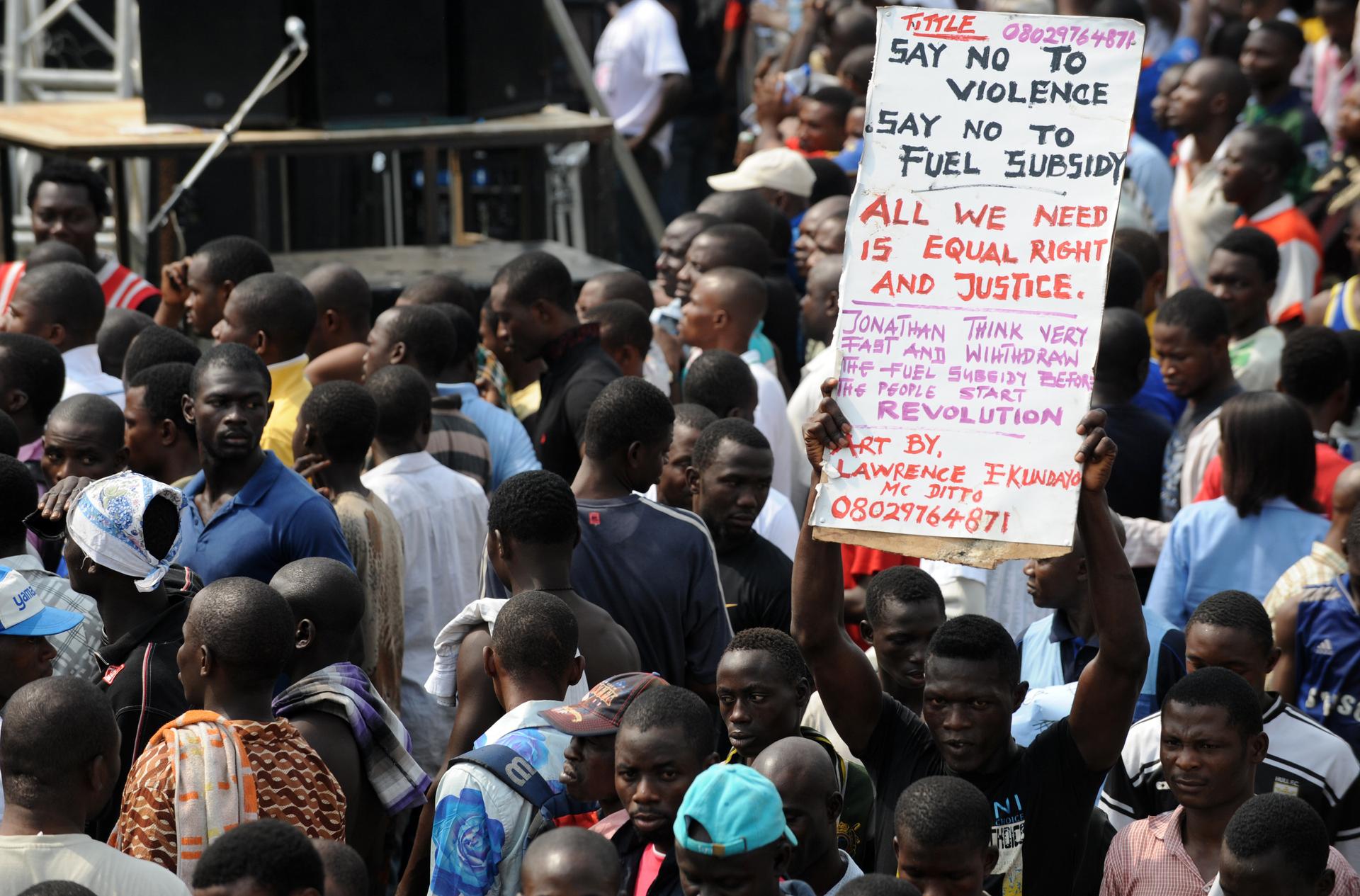Nigeria News: Protests continue amid increased sectarian violence
A man carries a placard protesting against the scrapping of oil subsidy at Gani Fawehinmi Park in Lagos on January 11, 2012. Thousands of protesters gathered in the park in the third day of an on-going mass strike to protest the scrapping of oil subsidy by the government.
Nigeria is going into lockdown.
Many of the country's borders and businesses are closed. More than a dozen regions have been declared a state of emergency. Union officials are threatening to stop crude oil exports — a move that could devastate the economy.
Islamic militants continue deadly attacks in the north, while tens of thousands of protesters gathered for the third day today, demanding the government re-instate a decades-old oil subsidy.
After President Goodluck Jonathan declared an end to the subsidy on Jan. 1, the cost of fuel doubled and tripled, causing the price of everything from food to school fees to skyrocket and large swaths of the population to take to the streets in protest.
Reuters reports that workers in the oil industry in Africa’s most populous country are threatening a strike to pressure the government into reinstating the subsidy.
"That will mark the beginning of the next phase of the protest against the removal of fuel subsidy and it will be very disastrous for the country," Chika Onuegbu, national industrial relations officer of oil union PENGASSAN, told Reuters.
The strike would not halt oil sales completely because some mechanisms are automatic and some workers are not union members, but given that about 80 percent of Nigeria’s yearly income comes from oil exports, even a limited work stoppage could “heap pressure” on Jonathan, according to Agence France Presse.
Bismarck Rewane, chief executive officer of Financial Derivatives Co. told Bloomberg News that chaos in the past week has already cost Nigeria $2 billion, damage he called “mindboggling.”
As economic troubles roar across the country, Islamic militants in the north, known as Boko Haram, which means “non-Islamic education is a sin” continue attacks. Police say eight people were shot dead late on Tuesday, including four officers, according to Voice of America.
The Nigerian Tribune reports that borders are being closed as the government fights the organization, believed to be tied to Al-Qaeda.
Boko Haram has taken responsibility for several attacks since 2009, including church bombings on Christmas Day that killed dozens.
Nigeria has a long history of clashes — including a bloody civil war in the late 1960s — between the mostly-Muslim north and the mostly-Christian south. The BBC reports that Abubakar Shekau, the group’s leader, defended the recent attacks that have forced thousands of people to flee their homes.
"We are also at war with Christians because the whole world knows what they did to us," he said on YouTube, according to the broadcaster. "They killed our fellows and even ate their flesh in Jos," he said, referencing reports last year that a few Christian youth had burned and eaten flesh after deadly clashes.
We rely on support from listeners and readers like you to keep our stories free and accessible to all. Monthly gifts are particularly meaningful because they help us plan ahead and concentrate on the stories that matter. Will you consider donating $10/month, so we can continue bringing you The World? Donations made between now and Dec. 31 will be matched 1:1. Thanks for investing in our work!
